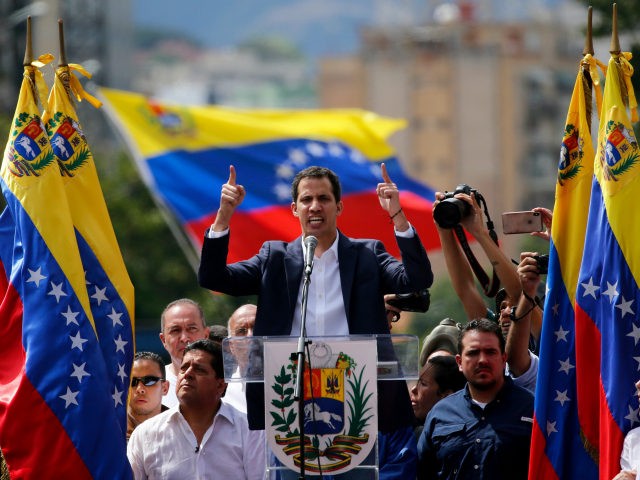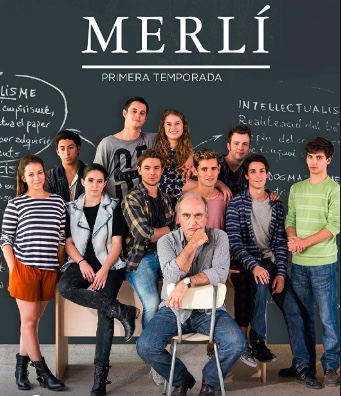Juan Gerardo Guaidó Márquez was born on July 28th, 1983. He graduated from the "Los Corales" Institute of Bachelor of Science in 2000. In 2007 he finished his undergraduate studies at the Andrés Bello Catholic University of Caracas, obtaining the title of Industrial Engineer.
During those years, Guaidó actively participated as a management member of the Engineering Student Center and he was recognized as the Ucabista Integral Student for his outstanding career in the academic and extracurricular areas during the university career. He was a representative of the Faculty of Engineering before the General Council of Student Representatives (COGRES), member of the Chair of Honor, UCAB Leadership Program and Founder member and General Secretary of the General Council of Student Representatives (COGRES), among many other academic activities he did.
After leaving this house of study he dedicated to continue his training and he obtained two postgraduate degrees, both in public management, one from the George Washington University / UCAB and another from IESA.
Outside the academic field, he made a full commitment to Venezuela, forming part of several important initiatives within and outside Vargas State, assuming various responsibilities in different areas of action. Among them he was highlighted as part of the Regional Campaign in Vargas State 2008, founding member and National Executive Secretary of the Youth for Social Democracy, founder of the organization Quiero Paz (I want Peace), until in 2009 he undertook the dream of creating Popular Will, a national party with a group of young people and Leopoldo López, of which today he is coordinator of the Vargas State and National Organization Manager.
Sworn the New Directive of the National Assembly
Date: January 05th 2019
The deputy Juan Guaidó (Voluntad Popular-Vargas) was sworn in as President of the National Assembly (2019-2020) during the parliamentary session held on January 5th.
Guaidó was sworn in with the right hand on the Constitution and his first words highlighted the victory of having consolidated the union of the Assembly, which today resists and keeps its doors open thanks to the determination and constant work of its deputies and workers, he said.
The swearing-in ceremony was attended by ambassadors, business managers and international bodies representing the diplomatic corps accredited to the government, such as Greece, Uruguay, Brazil, the United States, Canada, Peru, Guatemala, Argentina, Colombia, Mexico, Spain , Chile, Poland, France, Holland, Portugal, India, European Union, United Kingdom, Honduras, Japan, Ecuador, Germany, Italy and representatives of the Holy See.
Juan Guaidó: I swear to formally assume the powers of the National Executive as President in charge of Venezuela
Date: January 23rd 2019
Caracas. With a mobilization made from 9 points of the Capital City, the Venezuelans marched in the company of leaders of various political parties, to the Juan Pablo II Plaza, located at the height of Francisco de Miranda Avenue in the Chacao municipality, where from a platform the President of the National Assembly, deputy Juan Guaidó swore to formally assume the powers of the National Executive as President in charge of Venezuela.
"Today we take another step and to avoid any doubt, today I take the step with you. Today, January 23rd, 2019, before God Almighty, I swear to formally assume the powers of the National Executive as President in charge of Venezuela. The whole country is sworn in to carry the message to the National Armed Forces (FAN), to defend our Constitution to restore the freedom of Venezuelans.
""We know that this will have consequences, but we will not allow it to deflate, because even though we are in dictatorship, we know that a united people will never be defeated and we must clarify that this is not about doing anything in parallel, because we have the support of the people in the street, so that those who usurp power today I tell them that we will continue until we achieve the prosperity of Venezuela. This movement is unstoppable.
"The sector of the population that still supports the usurping regime, told them that "they are not going to twist anyone's arm" and that, on the contrary, what they are looking for is to shake hands with them, because in their opinion these have been deceived and defrauded by Nicolás Maduro and his corrupt government.
"For a long time we asked ourselves if it was worth the struggle and the insistence and I tell them that if we continue, we go out to the street and achieve freedom, all the sacrifice will be worth it, because leaving today was worth it, we told the whole world that we do not want the usurper. The silence with which we started this year is broken today with shouts and no more silence. In our hearts we have the faith that we will achieve it.
"Finally, Guaidó said that today there were more than 53 marches held in parallel throughout the national territory and thanked the response of the convocation held throughout the country, affirming that Venezuela today, January 23rd, a symbolic date for democracy, has recovered the hope and vision of the future.
Guaidó demands the departure of Cubans from the National Armed Forces and authorizes the presence of the US Embassy in Venezuela
Date: January 25th 2019
Caracas. The president in charge of Venezuela, Juan Guaidó, said during a press conference, held together with the citizens in the Plaza Bolívar de Chacao, that in two days the new presidency in charge has achieved what the Nicolás Maduro's usurper regime could not do in 6 years, which is to authorize humanitarian aid for the country.
"We said that when we had the national and international support we would take the step and we did. The recognition of the countries of the world in favor of the Venezuelan struggle, means trust and legitimacy. In just 2 days, we achieved what they did not do in 6 years, authorize humanitarian aid and although the usurping regime tries to sow doubt about our legitimacy, when hope comes, there is no one to stop it.
"At the beginning of the act the President in charge of Venezuela, made a minute of silence in honor of those killed because of the repression of the dictatorship in recent days and sent a condolences to their family and friends on behalf of the entire national parliament .
"Military brothers is with you, it was time to side with the Constitution and Venezuela, you have to decide whether or not to allow the entry of humanitarian aid for the country and thereby recognize this Government. It is time for Cuba to leave the command posts of the National Armed Forces and at this point I clarify something: Cuban brother, you are welcome to stay in our land, but not in the command posts, those should leave them now.
"Guaidó invited US officials to stay in Venezuela and reported that the American Embassy stays and keeps working with the doors open. Over the announcements of the usurper Nicolás Maduro, asking the Venezuelan diplomats in the United States to return to the country, he urged them to ignore the order and stay in US territory supporting the Venezuelans who live there.
"I just spoke with one of the officials and she told me: to the President order, I stay at the embassy to continue working for Venezuela. Our only framework is the Constitution, because it is the only one that protects and guarantees human rights. We are not only going to exercise the functions in the street, but we are doing our work for Venezuela. We are working on the Country Plan, which we have been working on for a long time.
"The person in charge of the nation announced that in the next few hours they will make announcements aimed at protecting assets of corruption frozen in other countries and advanced the possibility of starting to use them to solve the crisis that crosses the country, initially through NGOs and organizations like Caritas, the Red Cross and the Catholic Church.
He also invited citizens to download the "Amnesty Law and constitutional guarantees for the military and civilians who collaborate and have helped with the restoration of constitutional order", print it and deliver it to military personnel who know or work near your homes.
"Leave the Law under the door. This is a non violent civil action, unprecedented, where we say come here, here there is future, opportunity and homeland. Maduro does not protect anyone. I am sure that within the National Armed Forces they have the same feeling that we do because they are also Venezuelans.
"Finally he announced that next week a large mobilization is expected and the details will be unveiled this Sunday. He assured that they will return to the streets until the cessation of the usurpation, transitional government and free elections are achieved.
"This is not thanks to me, it is thanks to all of us who have fought for this, like Leopoldo López, Juan Requesens and all the political prisoners. More than a liberator, I prefer to be a public servant for you. Here there is already an established route. If they dare to kidnap power again, I ask you to keep us on the road, in the street peacefully fighting for freedom".
Source: National Assembly of Venezuela



/s3.amazonaws.com/arc-wordpress-client-uploads/infobae-wp/wp-content/uploads/2019/01/23152342/guaido-venezuela-1.jpg)














.jpg)












